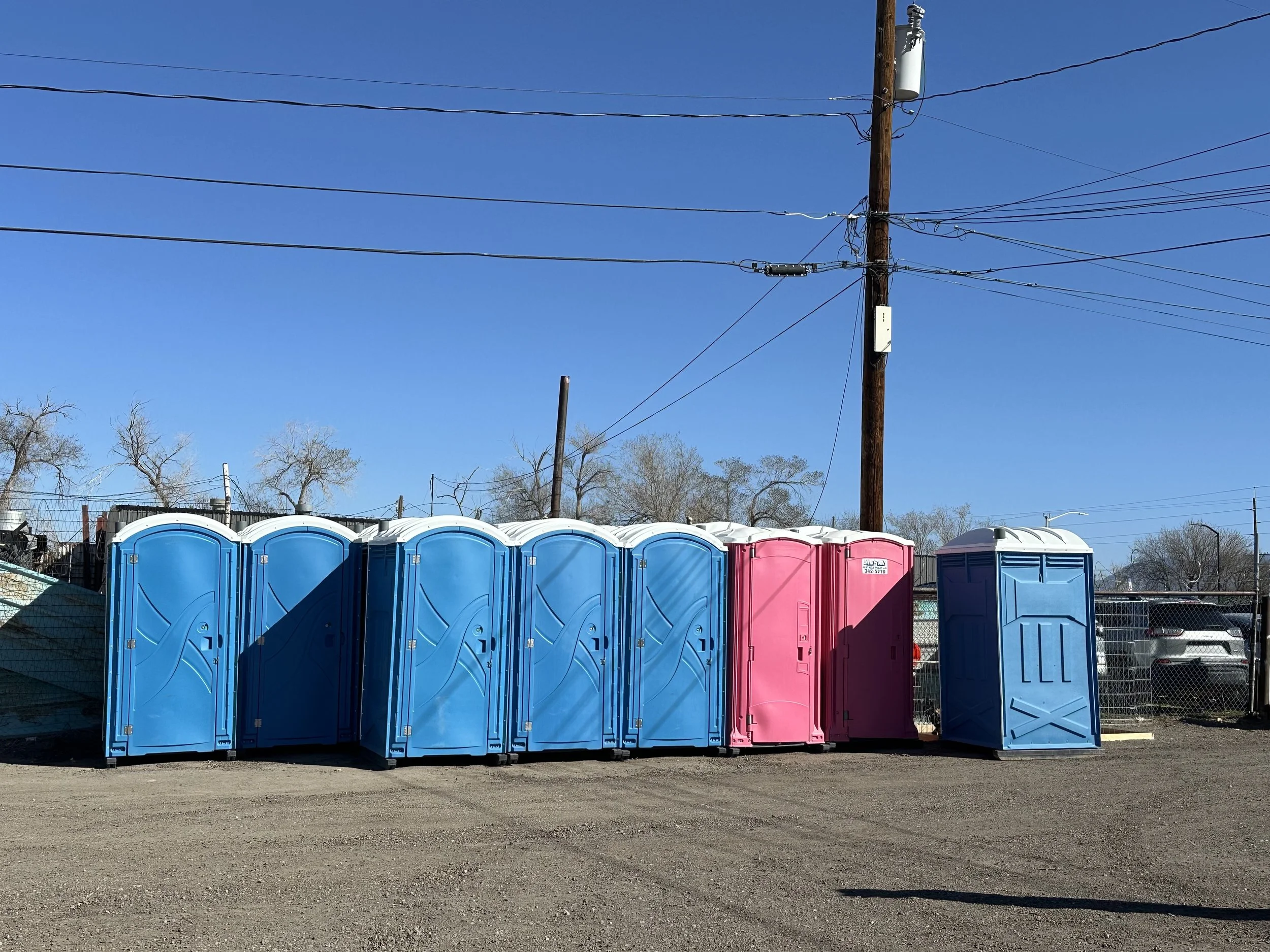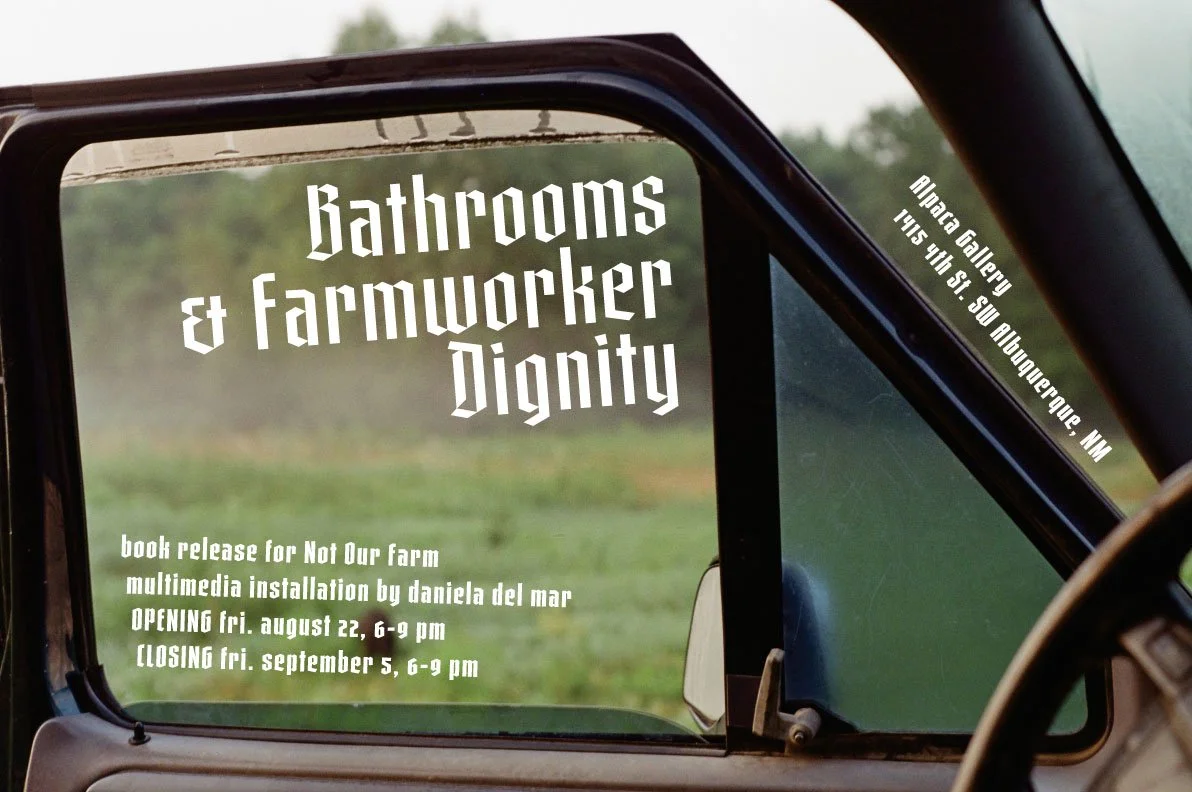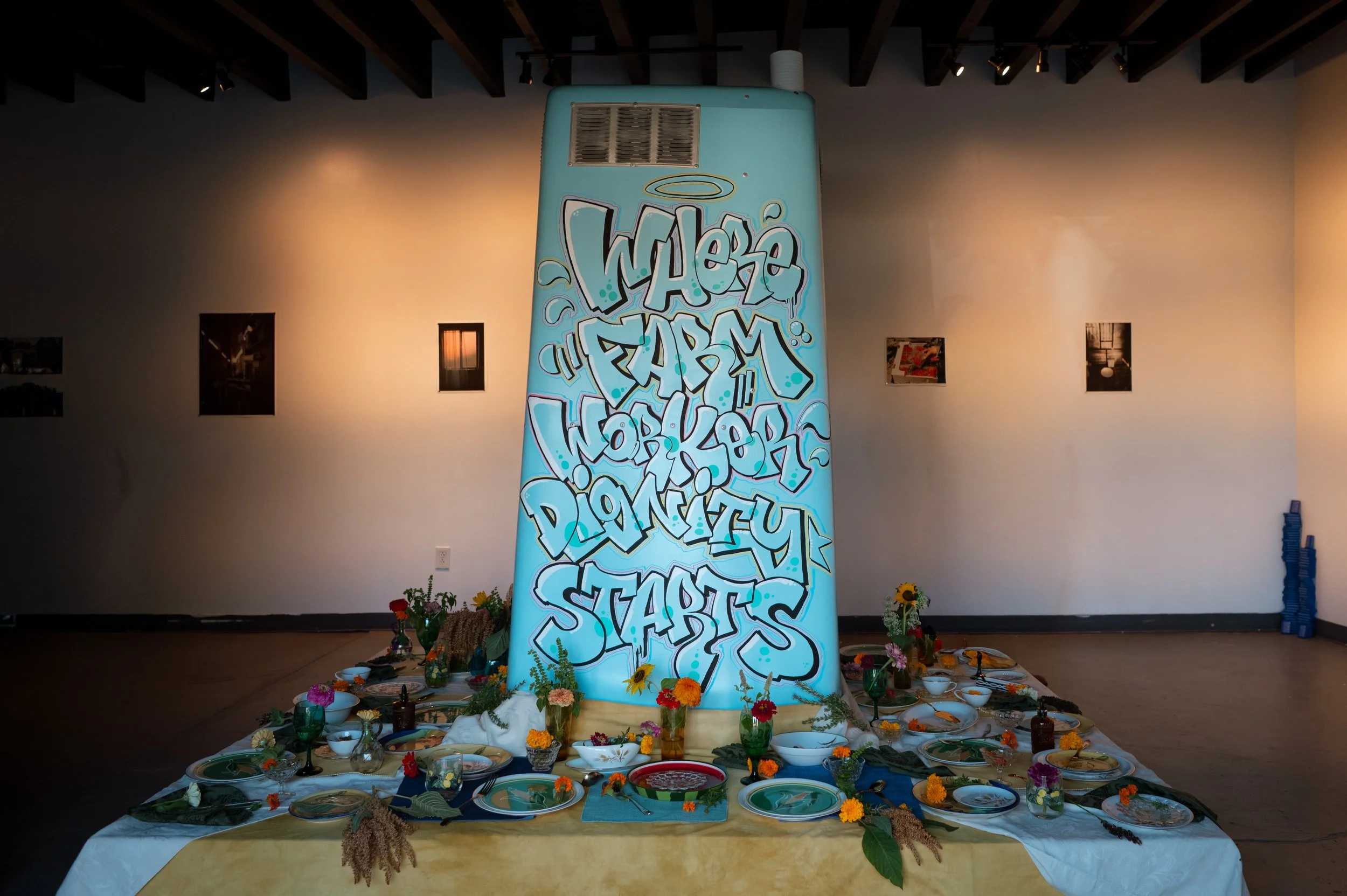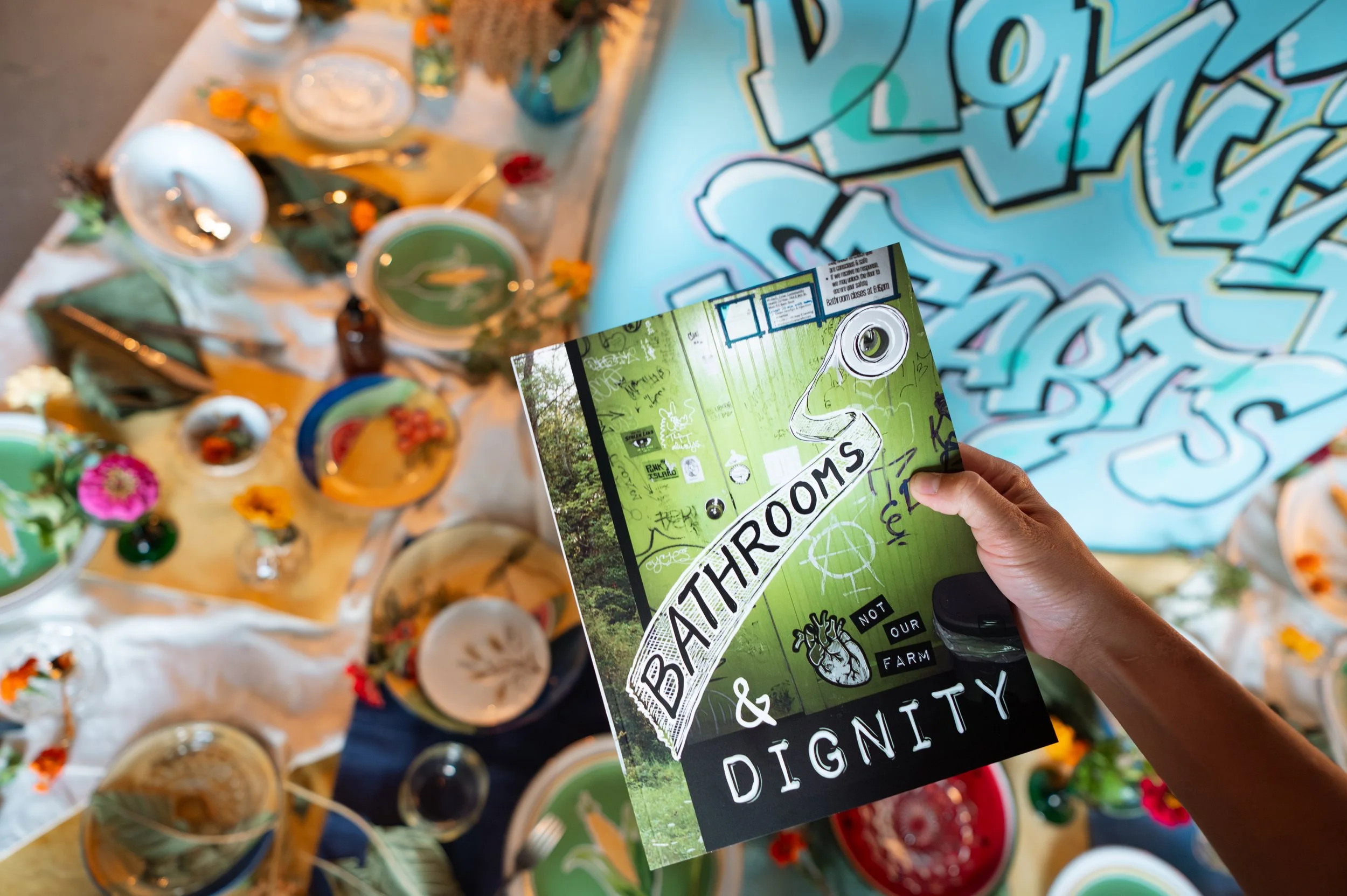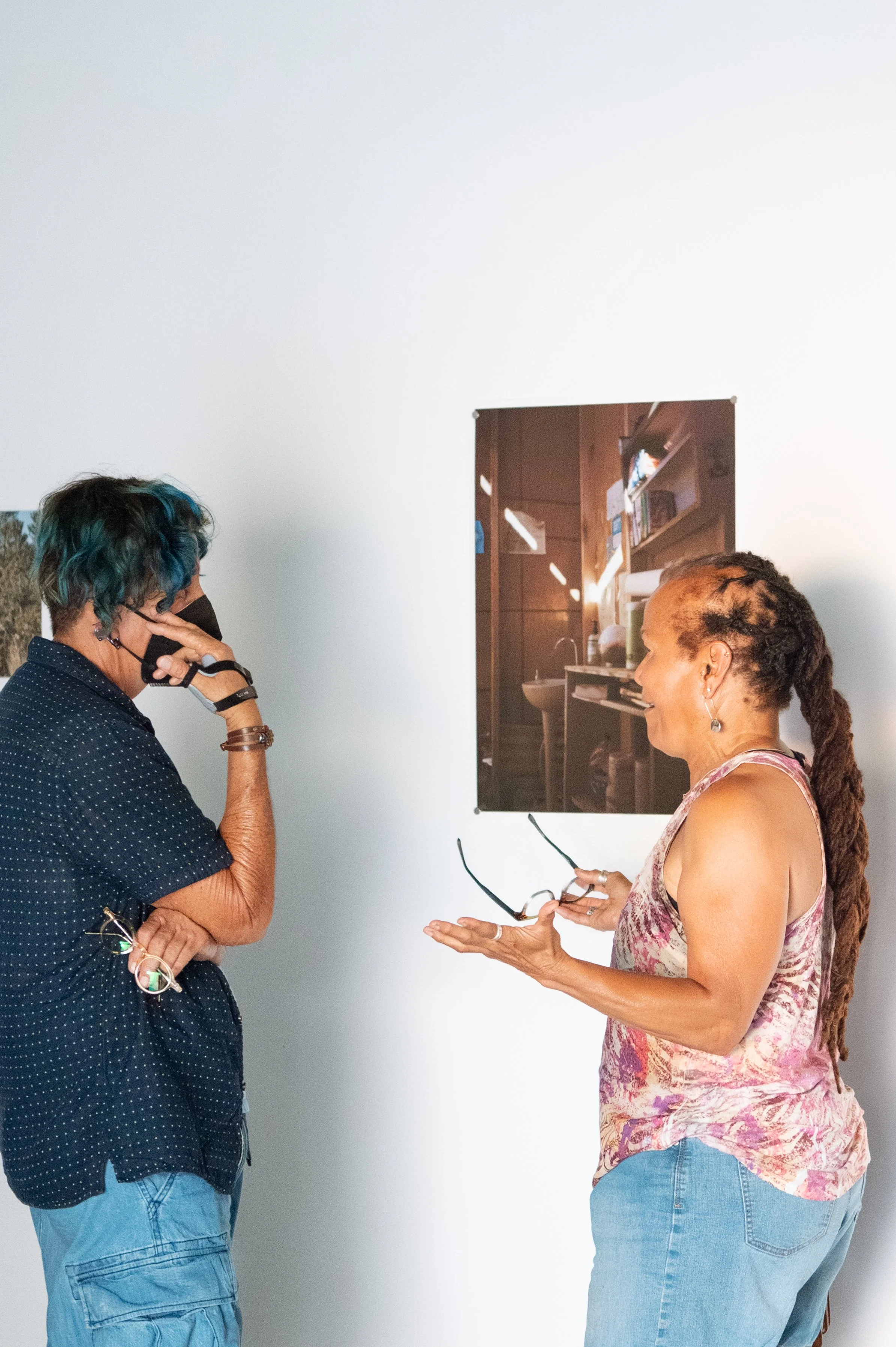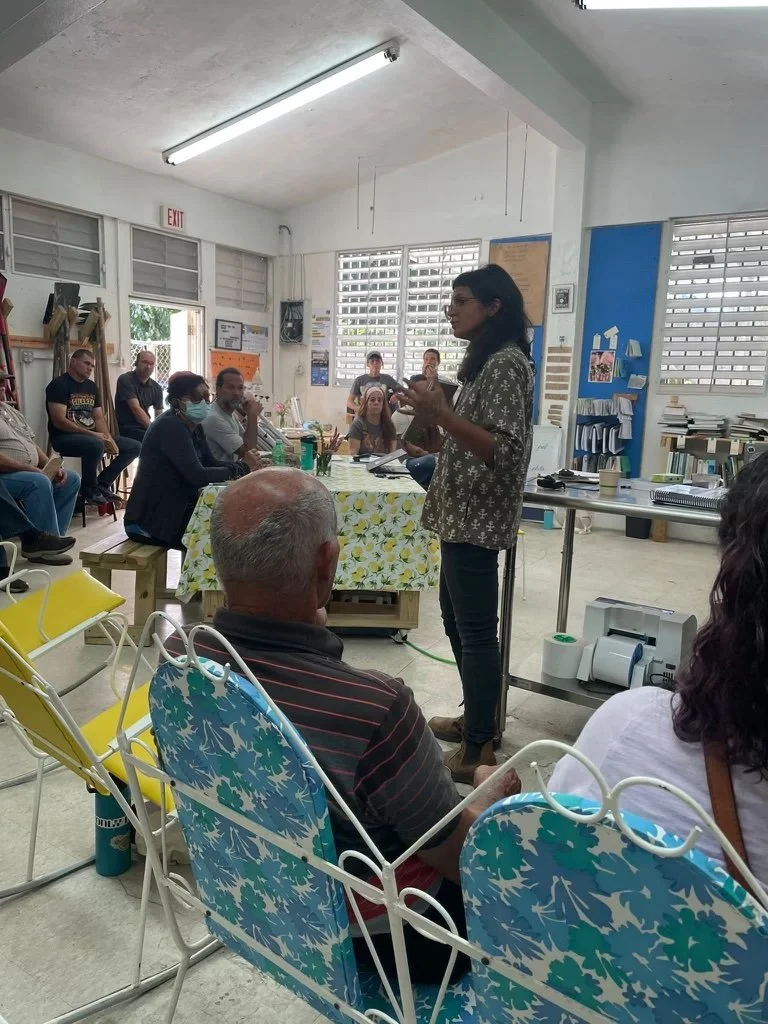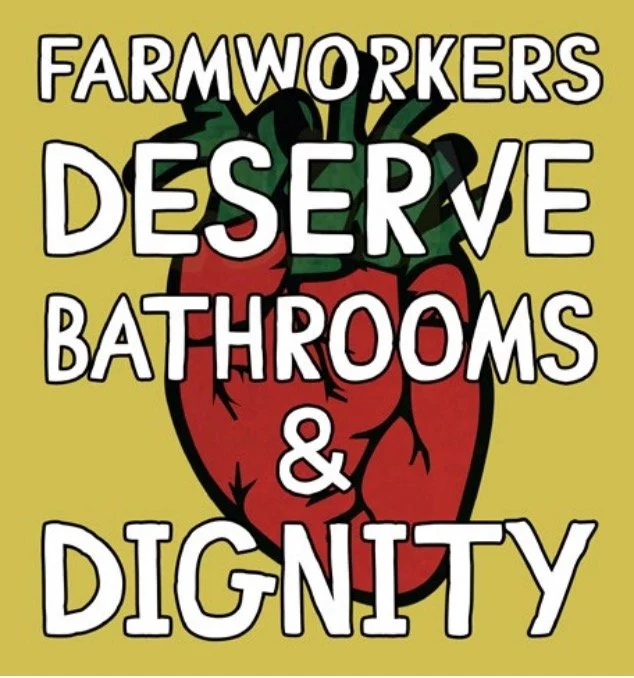
Bathrooms & Dignity
About the Bathrooms & Dignity project
Since 2019, Not Our Farm has interviewed over one hundred farmworkers working on small farms across the country. What has come up time and time again is the issue of bathrooms on farms, specifically the lack of bathrooms. Many small farms are not regulated by the FDA for food safety standards and often have too small of a staff for OSHA standards to be enforced. Often small farms have multiple sites or fields, which can make providing bathrooms difficult. Or, because of the outdoor nature of farming, farm owners may think it is okay to just use the woods or fence lines. Regardless of the reasons behind not providing bathrooms, the hardship that a lack of bathroom access poses to farmworkers is significant and unacceptable.
You can read many farmworkers’ testimonials on our interview page and in our instagram story highlight from 2021 on this subject:
In Spring of 2024, Anita was approached by the Local Food Safety Collaborative (LFSC) about collaborating on a project about bathroom access on farms. Anita moonlights as an on-farm food safety trainer and LFSC had heard Anita share about this issue and the intersections of food safety and dignified labor. After a couple conversations, we submitted a proposal and they decided to fund Not Our Farm with $25,000 from September 2024 to August 2025 for the Bathrooms & Dignity project. This was Not Our Farm’s first and only federal grant.
The purpose of this project was to build solidarity and power among farmworkers around their experiences with the lack of dignified and sanitary personal hygiene spaces on farms. We wanted to raise awareness with consumers and the general public about the realities and harsh conditions for farmworkers. Another goal was to offer ideas to farm owners on how to navigate bathroom access on farms by sharing resources and unique information from farms who have managed to provide safe and dignified bathroom access for their workers. Finally, we also wanted to uplift the food safety implications of lack of bathrooms and the contradictions within the food safety regulatory space (scapegoating “worker health and hygiene” for food safety outbreaks while ignoring the deeper issue of lack of bathroom and handwash access on farms).
The project was two-part:
The first part was a publication / book about farmworker experiences with bathrooms on farms (or lack of bathrooms as the case often is), with worker testimonials, resources, food safety implications, and other themes that emerge from farmworker stories.
The second part was a collaboration with artist daniela del mar to create a multi-media installation on the theme of bathrooms & farmworker dignity to be shown at a local gallery in Albuquerque (and to travel beyond) as part of the Bathrooms & Dignity book release.
Part One: The Bathrooms & Dignity book
In October 2024, we did a call out to farmworkers from across the country to share their bathroom experiences working on farms. People wrote in and shared their horrifying, hilarious and heart felt stories with us to publish in our book.
We collected all of these stories and also asked for testimonials from farm owners about good bathroom situations on their farms, added in compost toilet tutorials and blueprints, beautiful photos from our favorite farm bathrooms, incredible artwork and insight and essays from food safety educators and enthusiasts about the importance of bathroom access for farmworkers.
What resulted was a 100-page book! It is beautifully and masterfully designed by Alicia Robinson-Welsh and thoughtfully translated into Spanish by Jeanette Ramirez.
The book is available on our Resources page to purchase by sliding scale donation or to download for free.
Part Two: Bathrooms & Farmworker Dignity installation
In early 2025, we purchased a used portapotty from a local portapotty company in town (Albuquerque). It was kind of vintage, made out of fiberglass and had been taken out of circulation. We bought it with the vision of it being included in our book release/art installation as part two of this project.
In the spring, after many pressure washings of the portapotty, we began seeking an artist to collaborate with. We were lucky enough to meet and know daniela del mar, a transdisciplinary artist. daniela is a graduate student at the UNM Arts & Ecology program. daniela enthusiastically took on the project! We dropped the portapotty off at their studio for them to begin working on the design based on the theme of bathrooms & farmworker dignity.
In August, the installation was held at Alpaca Gallery in the Barelas neighborhood of Albuquerque.
What daniela created was truly inspirational. They were able to bring this overlooked/ignored/shamed topic into focus in such an inviting, engaging and beautiful way.
Court Kessler, a photographer and farmworker, came out and took photos of the opening event. We had the opening catered by technobutter and the Bathrooms & Dignity books were available to purchase at sliding scale. Dr. Bronners came through with a donation of 400 bars of soap to support the installation and to give out to attendees. We donated all the leftover soap post show to Albuquerque Mutual Aid to distribute among unsheltered neighbors.
All proceeds from the book sales supported our Farmworker Emergency Fund and we raised over $1000 for the fund. We also held a postcard writing action to local legislators to ban federal detention centers in New Mexico and to push through the stalled state heat regulation to protect ag, restuarant and warehouse workers from extreme heat. We were able to send off over 100 postcards!
The opening and closing events were highly attended with 75- 100 people attending each one. It was truly a celebration of farmworker dignity! Many have shared with us about the conversations this installation has provoked among them with their friends and family.
Listen here to the playlist from our opening and closing - the playlist was curated by our friend, Cecilia Flor.
all photos below by Court Kessler
Part Three: what’s next for Bathrooms & Dignity?
The original plan was to travel with this installation and have exhibits/book releases in other parts of the country. We had invitations to come to El Paso, Wisconsin and New York. Unfortunately, our funding was not renewed because the FDA who funds the Local Food Safety Collaborative deemed that it was not in line with their priorities.
So for now the installation is on hold. The books will continue to be distributed around the country to farmers, farm training programs, food safety trainers, food system advocates and more.
Anita continues to give trainings around the country on the intersections of food safety and dignified labor and the subject of bathroom access on farms is a big focus.








